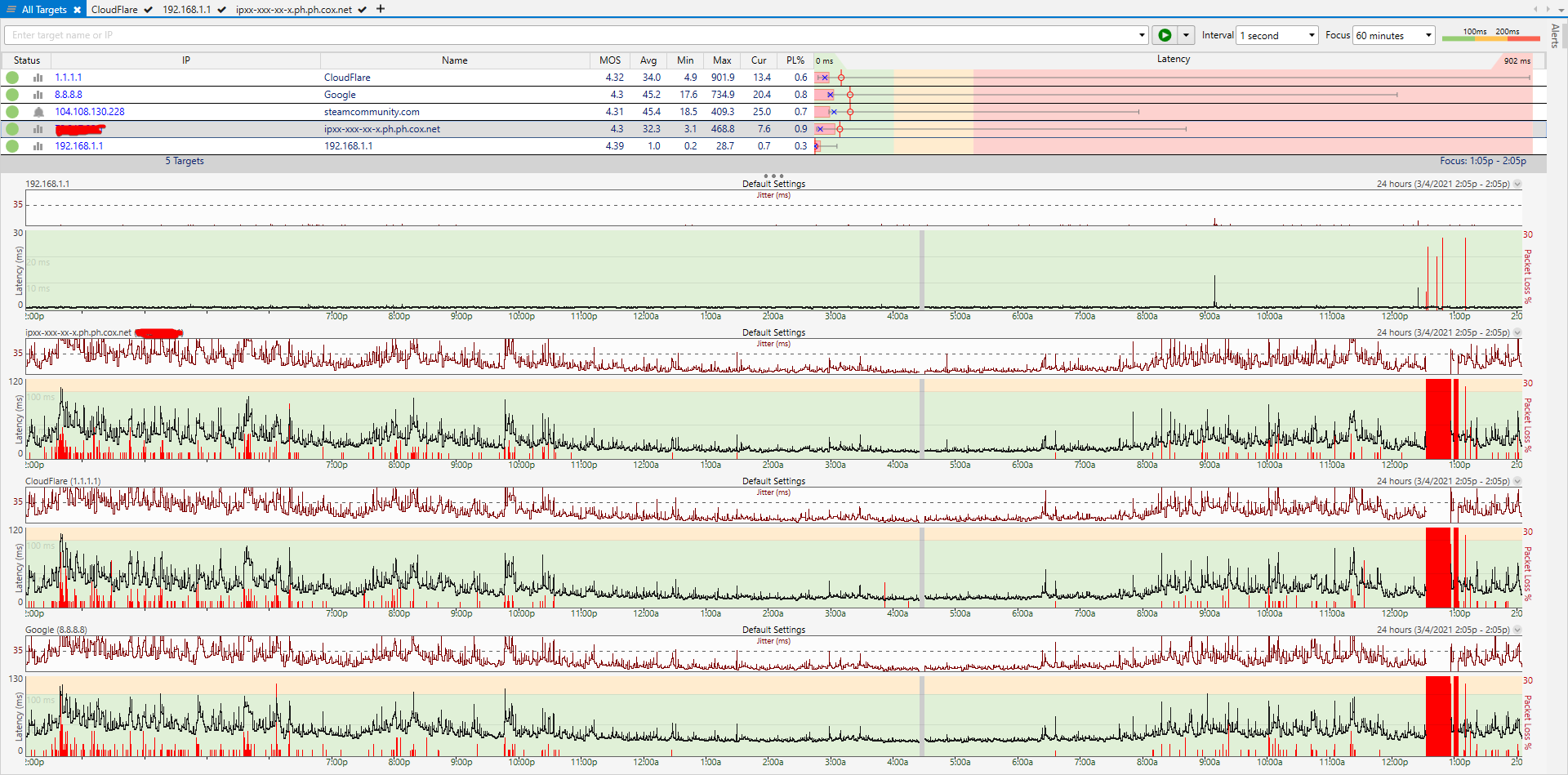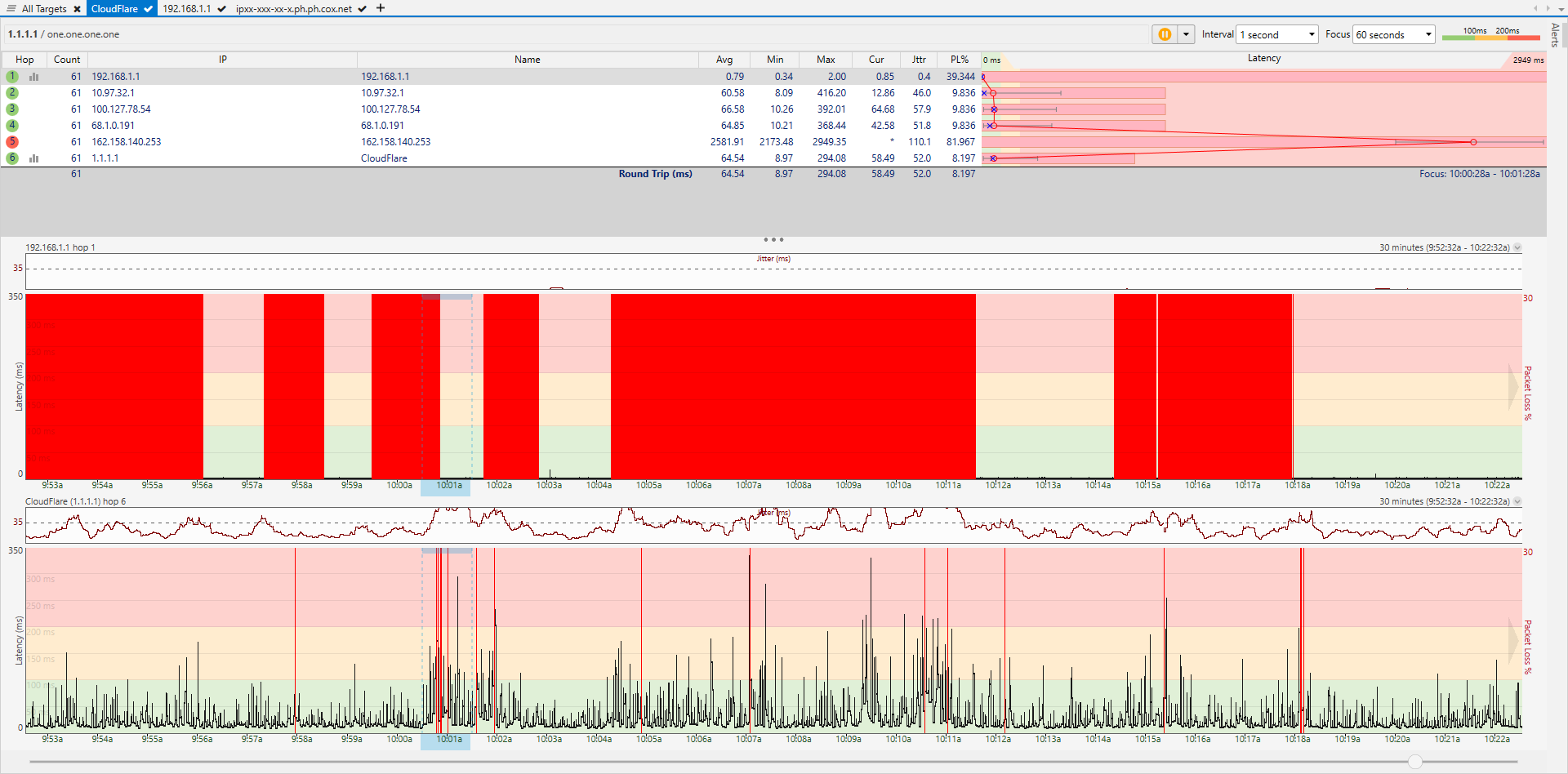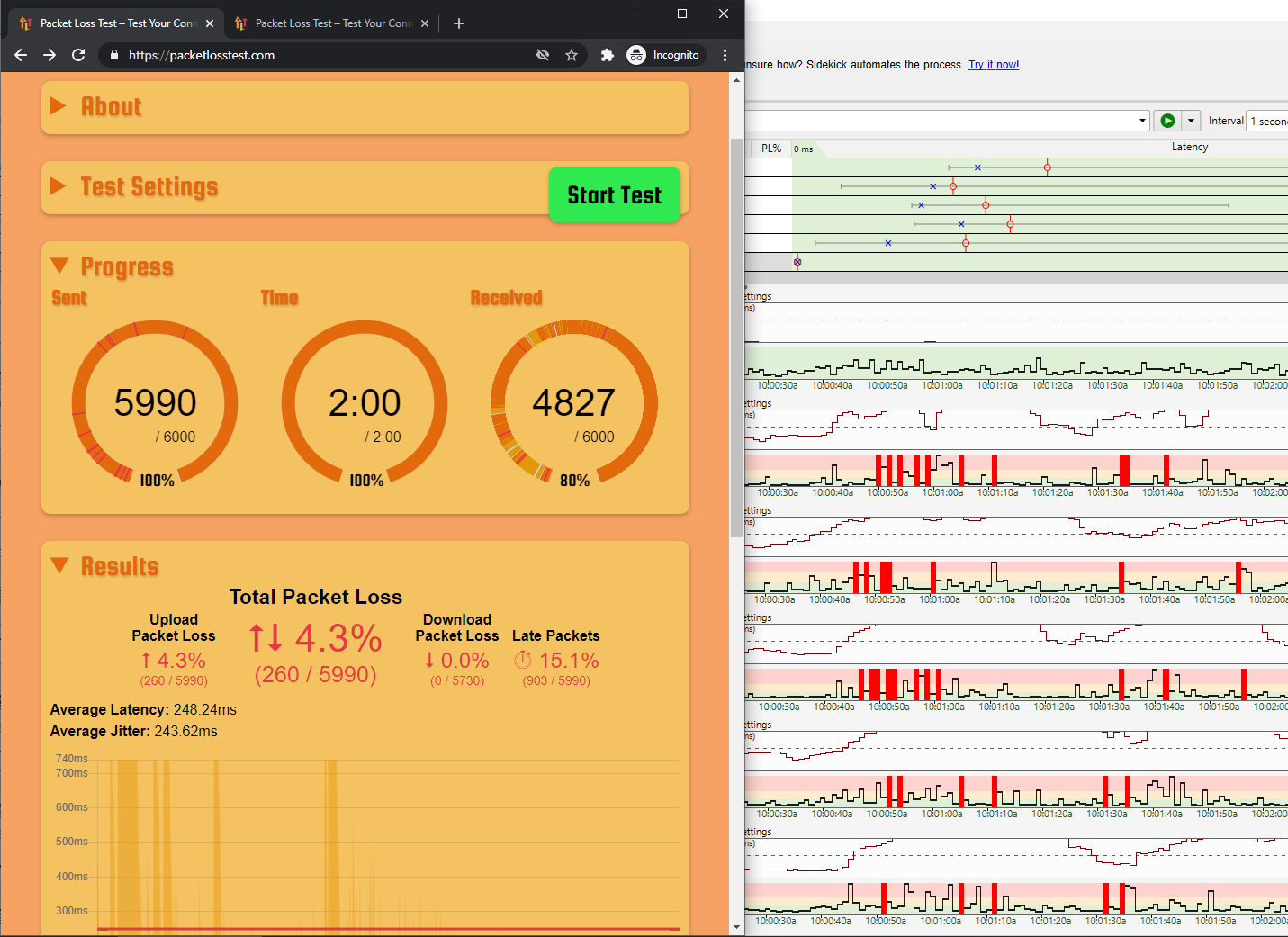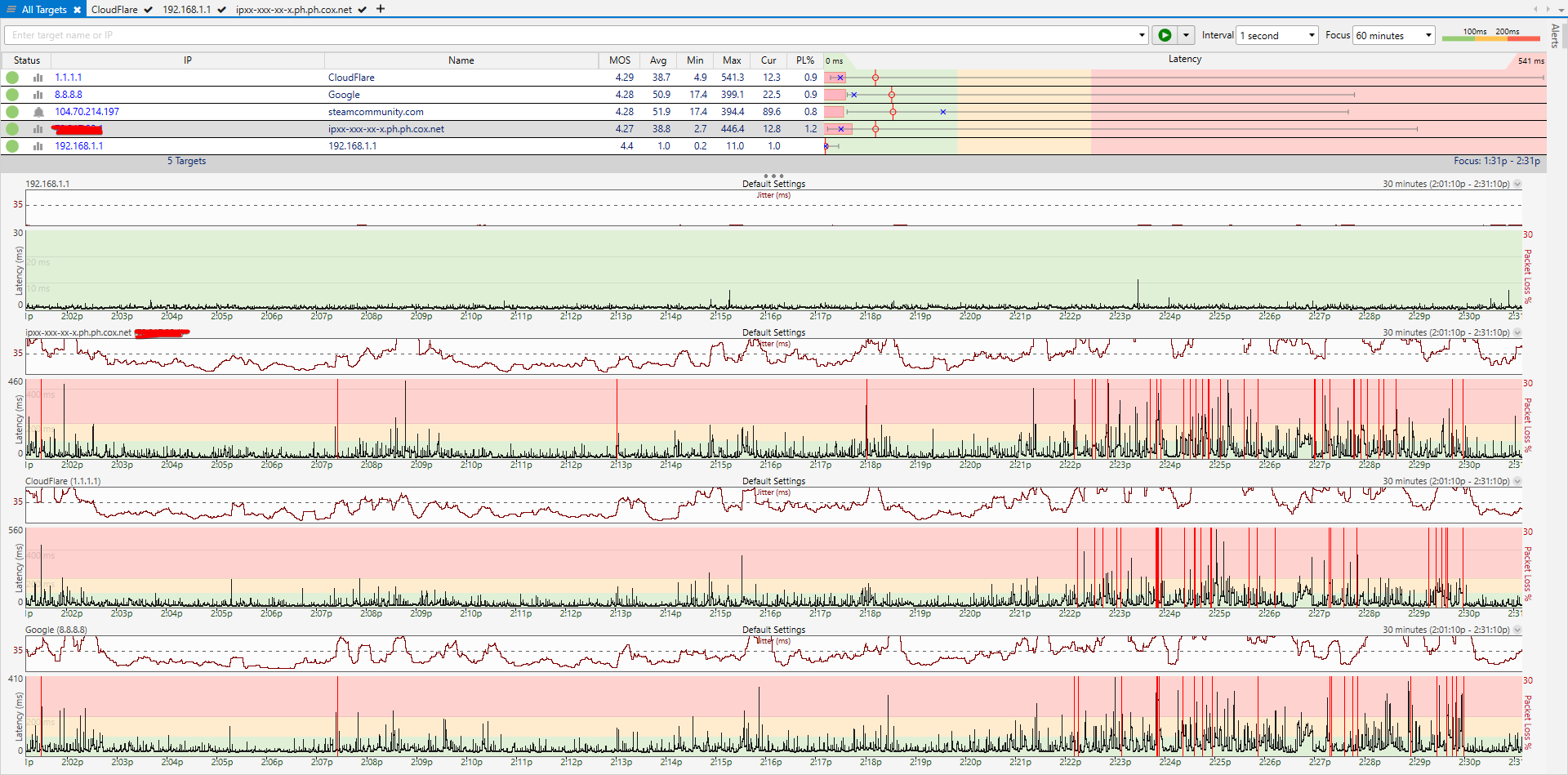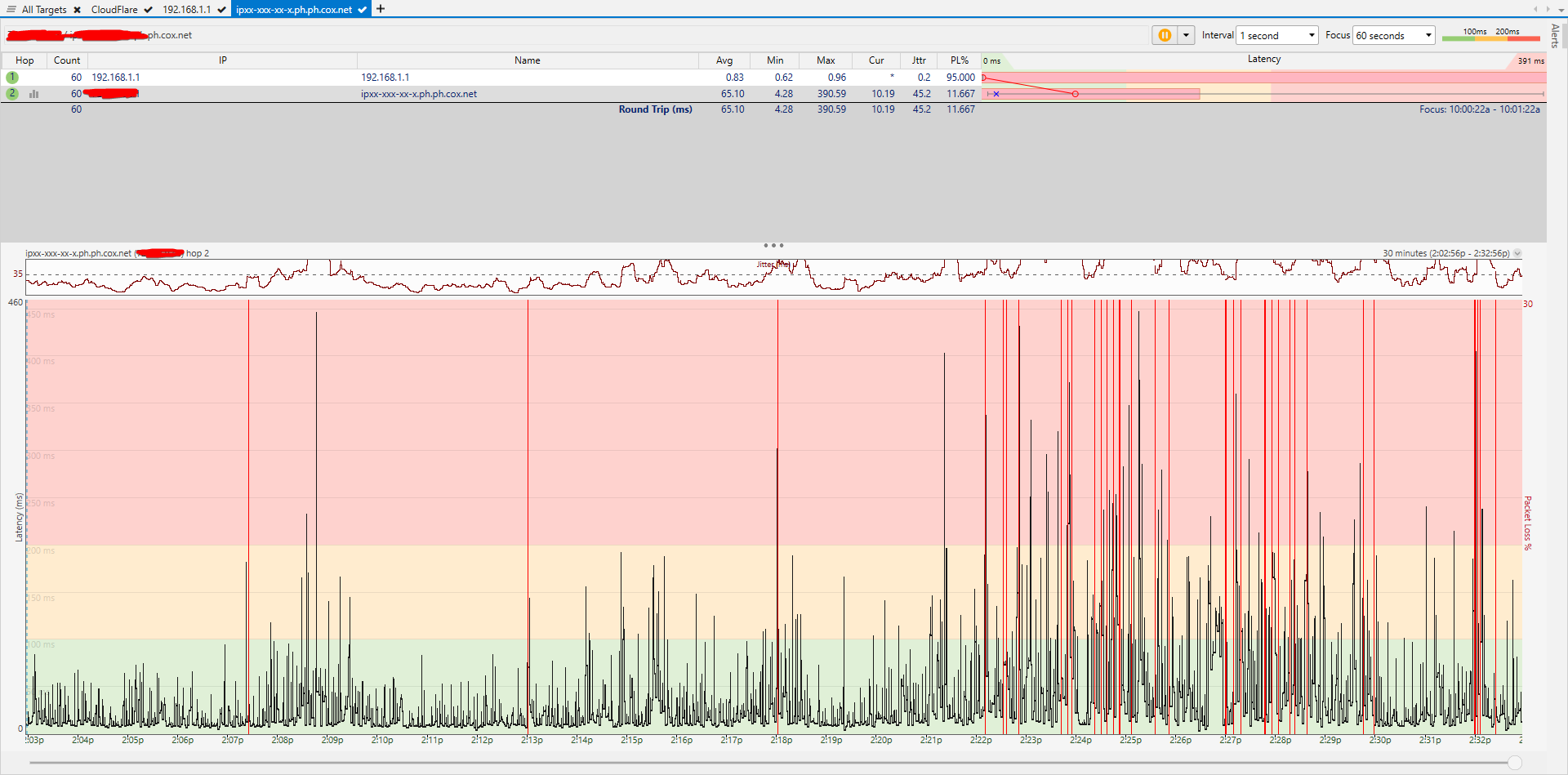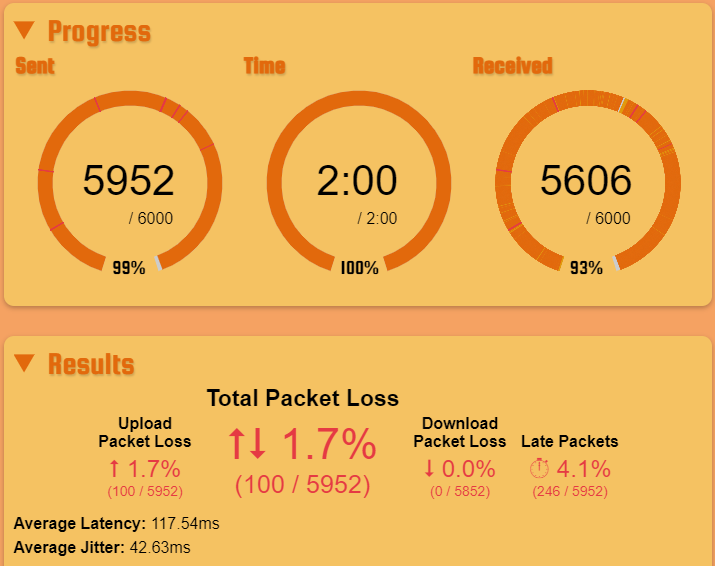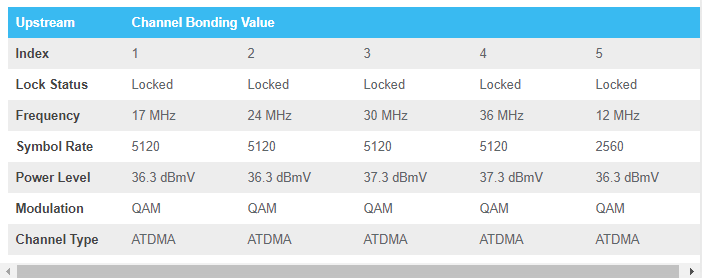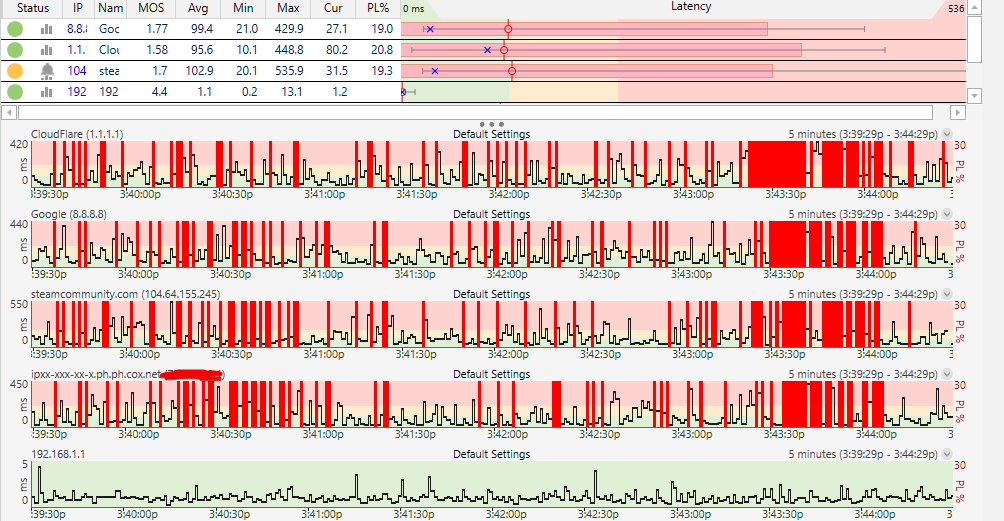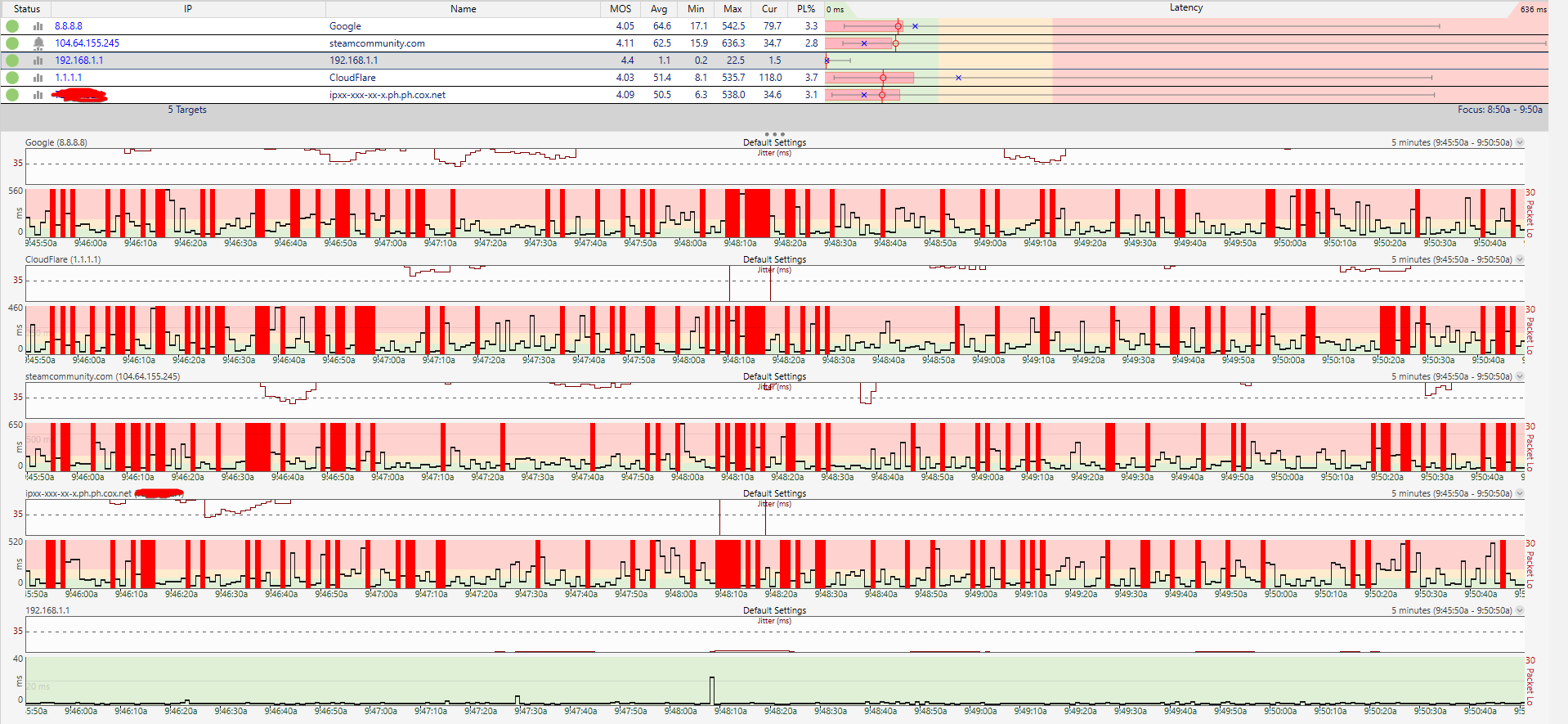Upstream packet loss and jitter
We're experiencing latency spikes and packet loss throughout the day. It appears to be upstream based on testing I've done so far. All the details are below. It comes and goes suddenly and seemingly at random, and does tend to fade away during the night as if it were congestion.
Had a tech come out, he just left. Said he checked the line all the way from the modem to the tap and the signals were all excellent. Once he reconnected the service I could immediately see high jitter and packet loss in PingPlotter. He said there's not much we can do since the signals are all good.
- We have the Panoramic WiFi Gateway.
- The modem was originally bridged, but I factory reset it in an attempt to debug this issue -- didn't help.
- Jitter and packet loss is seen simultaneously by two desktops wired directly into the modem (well, through a wall).
- I recently saw the modem reboot itself on its own when the issue was happening. Not sure if related.
I've been running PingPlotter for a few days against the following targets:
- Google DNS (8.8.8.8)
- CloudFlare DNS (1.1.1.1)
- The default gateway assigned to my modem (resolves to ipxx-xxx-xx-x.ph.ph.cox.net)
- The modem itself (192.168.1.1)
The jitter spikes and packet loss occur simultaneously in all of these targets except for the modem itself which remains stable. I will attach plenty of screenshots at the end of this post.
When analyzing results from Google or CloudFlare in PingPlotter, I see the same thing many others on these forums have seen:
- The first hop is the modem (192.168.1.1) with no issues.
- The second hop is a private IP that is likely the CMTS (10.97.32.1). Continuous packet loss always begins here.
The default gateway (that IP which resolves to ipxx-xxx-xx-x.ph.ph.cox.net) shows the same packet loss but does not have any intermediary hops like the CMTS.
I've also been running basic tests with packetlosstest.com and have been able to reliably correlate those results to the packet loss shown in PingPlotter. According to packetlosstest.com the loss is only upstream.
- I've performed dozens of tests and I have only ever seen upstream packet loss.
- During the worst times I've had speed tests show nearly 0.1 Mbps upload. The download was also poor, but speedtest.net uses TCP so that's not necessarily an issue. See screenshot further below.
This can get extremely disruptive of any online activities that require stability, especially VoIP and live screen sharing. I usually have to tether my phone and use expensive LTE to do some of these tasks. If it can be looked into or if we can get any advice on how to proceed, we would highly appreciate it!
Now for some screenshots...
PingPlotter 24h Summary:
Please ignore the red block towards the end, that was the technician doing his work. You can see the 24 hour pattern here. It seems to follow a congestion pattern, though I've also experienced this issue as late as 2-3am several times (haven't caught it that late on PingPlotter yet).
PingPlotter to CloudFlare:
Just an example showing continuous PL starting at the famous second hop (CMTS) for a regular web connection. It's the same exact story across all target websites.
Packet Loss Test:
This is one of many examples of packetlosstest.com showing upstream packet loss. The activity on the right from PingPlotter occurred during the test and correlates with the packet loss seen in the test. The order of targets in PingPlotter are different and there's more, but the top timeline graph is still the modem and the rest include the same targets as above.
PingPlotter (while I was typing up this post):
I was going to look for a time to zoom in on where it goes from decent to bad very suddenly, and I didn't need to look for one as it started happening right then and there. If I was on a voice call, sharing my screen, or playing an online game right now, I'd be having a very rough time. I ran packetlosstest.com shortly after but it had calmed down by then, still showed 1.7% though.
Speed Test:
I got lucky with this one since the packet loss comes and goes very quickly and it's hard to capture in some tests without blowing 20 minutes doing them repeatedly. It slowed down this speed test to such an extent that my 300/30 Mbps connection became this. The next speed test was a lot better. This was on Feb 20 long before I began monitoring with PingPlotter. I will try to reproduce in the future and correlate with PingPlotter.
Modem upstream:
The tech said all the signals were excellent so I'm not really concerned with it being an issue on my end. Downstream signals have been steady all this time with SNR always at least 35 dB and usually in the 40-41 range. Power levels have also been good, well within -5 and 5 dBmV. Here's upstream:
There are "uncorrectable codewords" on the modem, but these only appeared after the technician came and disconnected service for his testing. Before that, there were 0 uncorrectables. I'm not sure if that could have caused them, so I'll include this image just in case.
